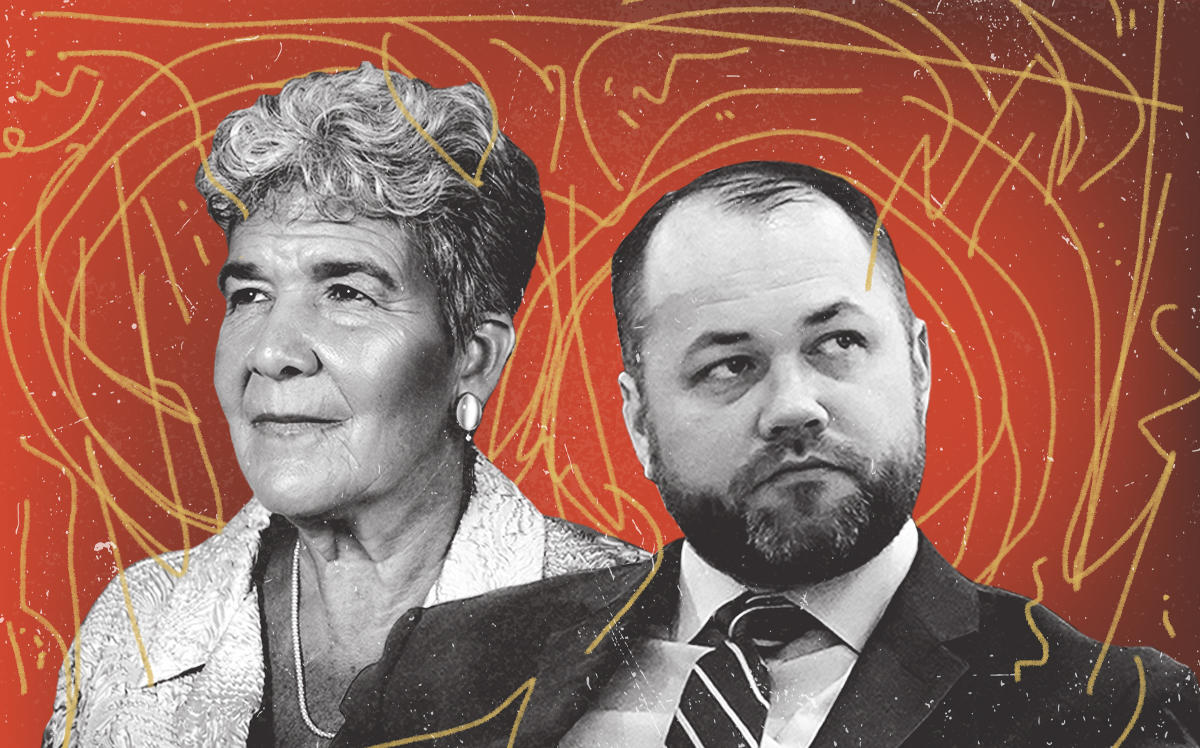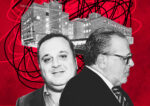Trending
Debate flares up over Johnson’s planning overhaul
Critics of speaker’s proposal concerned about role of City Council

The city’s land use and planning process is not perfect — on that much, the City Council and de Blasio administration seem to agree.
But the City Planning Commission criticizes the Council for blocking affordable housing projects and rezonings, while Council members say the process fails to take a long-term view of community needs.
During a heated, day-long hearing Tuesday, City Planning Commissioner Marisa Lago testified against City Council Speaker Corey Johnson’s proposal to create a 10-year planning cycle for the city, calling it infeasible and expensive. The administration estimates that environmental reviews alone would cost half a billion dollars.
Lago said the plan would create a “top-down approach” to land-use decisions, in which the City Council would have even more sway over plans for their districts and be more likely to override the wishes of community boards. Anti-development groups used similar language in objecting to the proposal last week.
Lago repeatedly cited member deference — the tradition of the City Council to fall in line with the local member on land-use decisions — as the guiding force behind actions the administration pursues.
Without buy-in from the local Council member, proposals are dead on arrival. For that reason, Lago said, the administration only pursues land-use actions in communities that have signaled support. The speaker’s proposal, she predicted, would hamstring city planners even more.
Under Johnson’s bill, at least three land-use scenarios would be drafted for each district. The City Council would pick one after receiving input from borough presidents, community boards and the public.
City Council members would not be required to vote on rezoning applications, but could choose to — which Lago said they almost certainly would, effectively adding another “veto point.”
“It basically provides yet another impediment to the construction of affordable housing,” Lago said.
Johnson objected to the cost estimates, saying the measure would streamline the planning process and allow the city to more effectively budget for the needs of each district. He repeatedly asserted that his proposal increases the amount of community involvement in land use and planning decisions and said Lago was misrepresenting the language of his bill.
The Council speaker also pushed back against the idea that the bill would effectively end single-family zoning in the city, resulting in some existing homes being razed to make way for denser housing.
He also called the current process a top-down approach, saying City Planning asks community members to consider zoning proposals that are already “fully baked.”
“This was supposed to be the administration that ended the Tale of Two Cities,” Johnson said, referring to the mayor’s campaign promise to fight inequality. “It doesn’t seem like you all want to do the hard work that we think is necessary.”
Johnson noted that the pandemic has disproportionately affected communities of color and that hospitals in some of these neighborhoods were replaced by luxury housing.
“What makes you pause and think maybe we’re doing something wrong here?” he asked.
Other City Council members asked Lago versions of the same question throughout the hearing: What would she do to increase community involvement and address inequities exacerbated by land-use decisions?
Many admonished her for not answering the question directly. Some members defended member deference as key to protecting the interests of their constituents.
Council member Antonio Reynoso criticized the fact that City Planning abandoned its push to rezone Bushwick after he and Council member Rafael Espinal demanded that the agency study an alternative community proposal that called for deeply affordable housing and fewer units.
That plan called for only 2,000 units, all of them affordable. The city’s plan called for nearly the same number of such units, but also more than 3,000 others to subsidize the affordable ones.
Reynoso said the community showed willingness to work with City Planning, but the agency had an all-or-nothing approach, resulting in no affordable housing being built. The agency, he said, chose to “relegate the community to destruction by gentrification.”
Council member Brad Lander, a sponsor of Johnson’s bill, cited the proposal to rezone Gowanus — which he said has “taken the better part of a decade” to get underway — as a reason for reform. He said the city’s land use process has become “toxic and broken.”
Council member Deneek Miller said he was concerned that the bill does not adequately increase community involvement in city planning. Manhattan Borough President Gale Brewer testified that the bill could achieve certain planning goals, but voiced concern that it “doesn’t put communities at the center of the planning process.”
She also addressed criticism of the proposal to rezone Soho, blaming the city’s Mandatory Inclusionary Housing program for an inadequate level of affordable housing in the plan.
The Real Estate Board of New York testified that it supports some of the goals laid out by Johnson, but that the bill fails to “establish a framework to resolve competing priorities between localized community needs and the citywide goals.”
The industry group also highlighted that City Council members likely won’t forego their ability to have the final say on rezoning applications.
“The Council is not a mere bystander, but a principal in the current land-use process,” the group wrote in prepared testimony. “This legislation does not address this underlying principle.”




